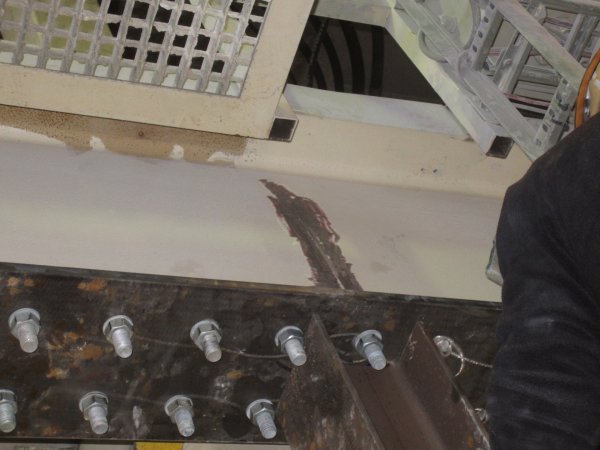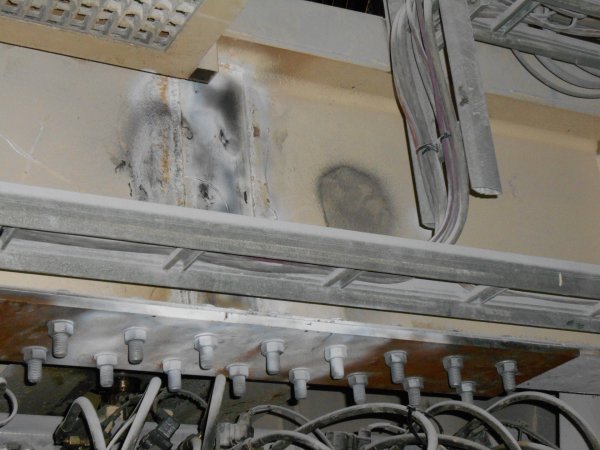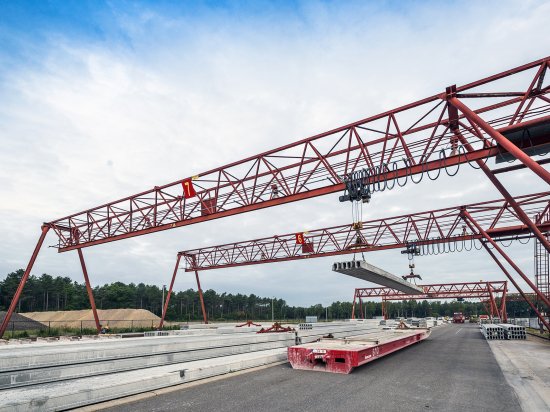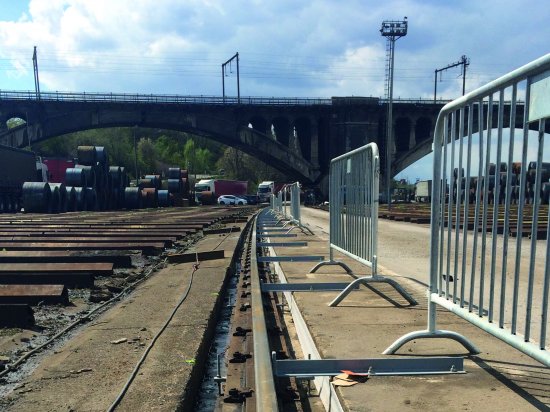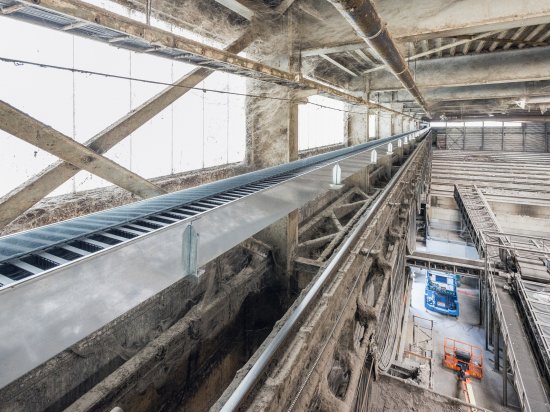Gunther Van Hal of YTONG cellular concrete block producer Xella turned pale when he looked at the 1-cm crack that suddenly appeared in the main girder of one of his critical cranes. He was forced to stop production immediately. Fortunately, an emergency intervention by the TCS Lifecycle Services team enabled him to resume activities just one day later.
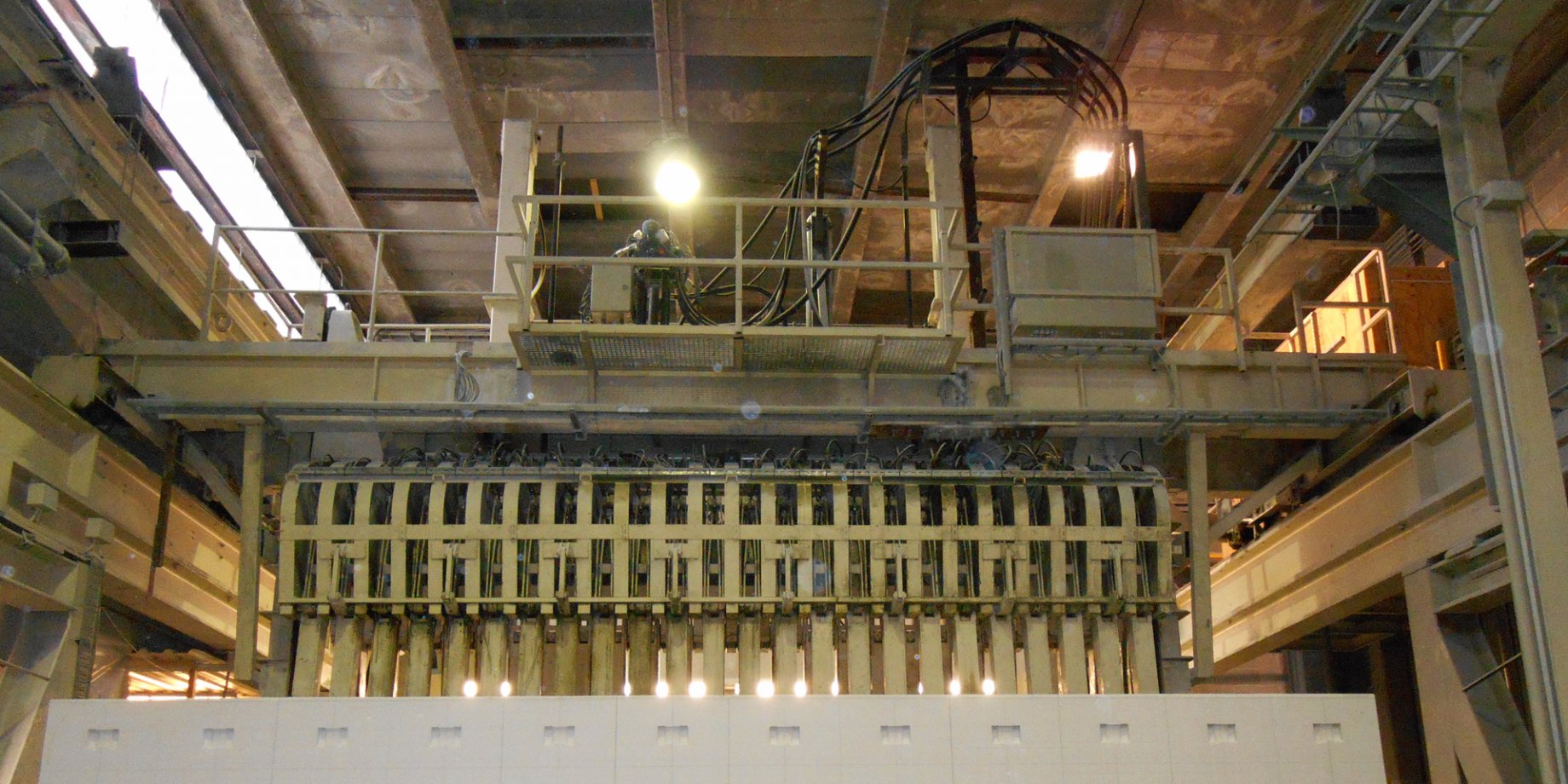
Back in business the next day
The crane fulfils an essential role in the highly automated production process of YTONG blocks (see also ‘Xella, the automated factory’). The process involves casting a giant cellular concrete cake, having it rise for one hour at a temperature of around 60°C and subsequently baking it in a high-pressure steam oven at around 190°C. Although the cake is pre-cut just before the baking process, the baked blocks still stick to each other and must be eased apart carefully. This is done using a crane with special grippers that is programmed to slightly lift and twist block rows so as to release them.
Quite a shock
Last year, a rather alarming problem occurred with this crane. “Suddenly, the grippers wouldn’t get into the right position anymore,” explains Maintenance Manager Gunther Van Hal. “It turned out that this was due to the main girder being severely damaged, displaying a 1-cm crack right in the middle, presumably as a result of fatigue. This was quite a shock for me. I had to stop production straight away and call for an emergency intervention.”
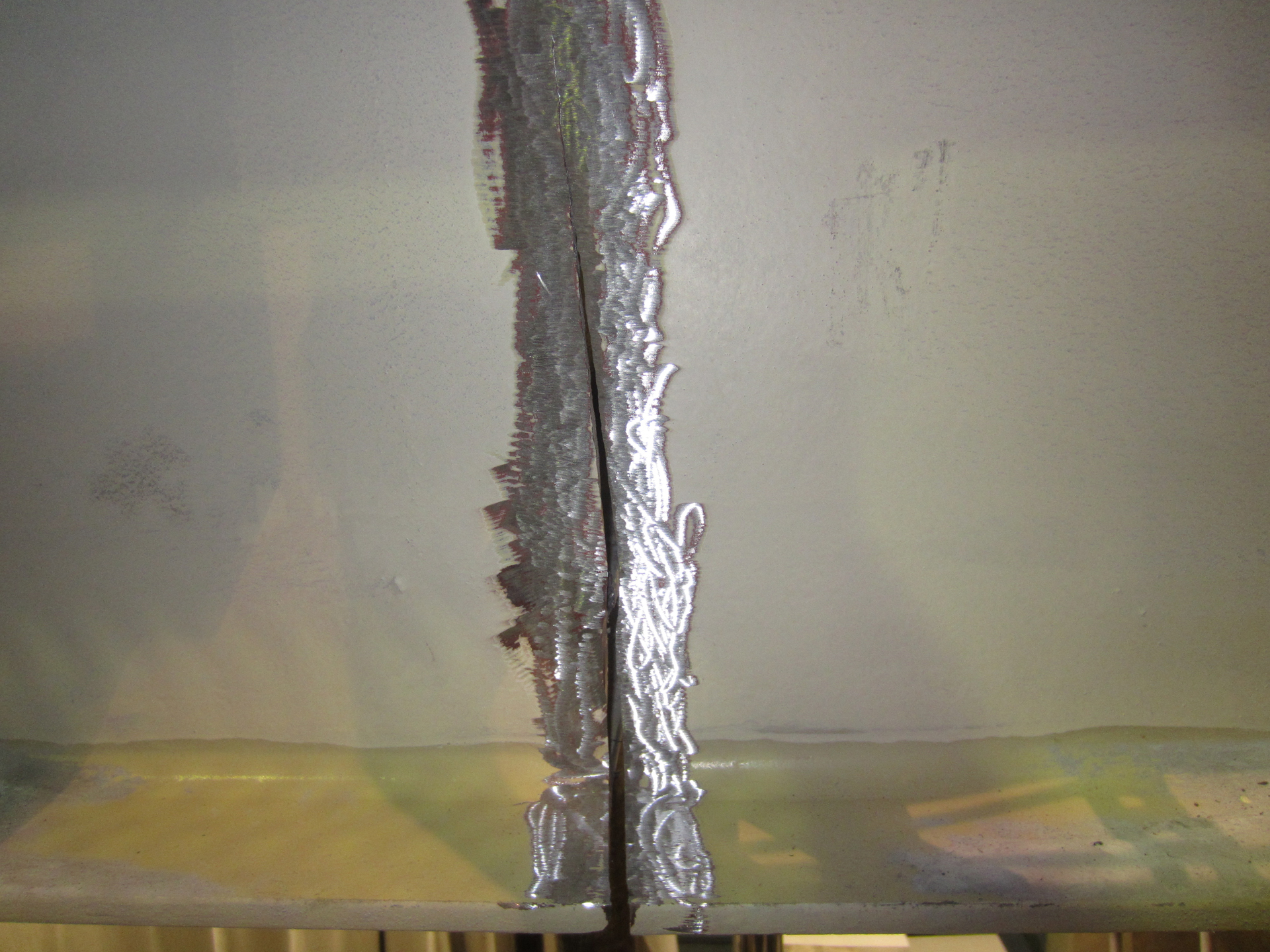
The remarkable achievement demonstrated their multidisciplinary strength as well as their great commitment
A custom-made solution within one day
Van Hal feared for a rather long production standstill, but fortunately TCS was able to help him out quickly. “The very same day, their project manager came on site to inspect the crane,” he says. “He quickly understood what the problem was and contacted his engineering back-office to discuss matters and figure out a smart way to repair the crane. They then proposed to fix the crack using a custom-made reinforcement plate. Upon my approval their engineer immediately designed and calculated the plate and had the drawings prepared. The plate was manufactured in their workshop that same night and they came back to install it the next day.”
Installation involved carefully lifting and repositioning the crane beam and bolting the plate onto it. The crane was tested and approved for service around 6pm. Van Hal: “I think this was a remarkable achievement, demonstrating the multidisciplinary strength of TCS as well as their great commitment.”
Xella,the automated factory
The Belgian company Xella is best known for its construction products YTONG (cellular concrete) and SILKA (calcium silicate blocks). Both products are manufactured in Xella’s plant in Zwijndrecht near Antwerp, following a process that is highly automated from start to finish. “We strongly believe in automation,” says Gunther Van Hal. “We are a quality mass production factory, requiring perfect control and great efficiency at every stage of our production process. For this reason we try to eliminate manual intervention as much as possible by installing robots to carry out most of the manipulations. What’s more, we develop most of the automation ourselves because we want our technicians to know exactly how the system works. This means we can respond quickly whenever a problem arises.”
